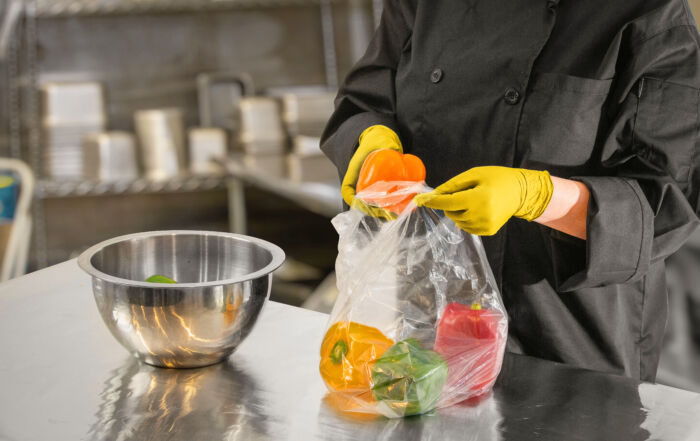The Importance of Food Safety Education
In my first blog this month, I mentioned that it was National Food Safety Education month. This is an important time of year to remind ourselves, and our teams, about why food safety is so important. Each year in the United States, 48 million people will fall ill, 128,000 will be hospitalized, and 3,000 will die from a foodborne illness. For those of you who, like me, live and breathe food safety, these are common statistics. I often don’t repeat these statistics because I take for granted that everyone knows them. Perhaps this is not always the case, and they certainly bear repeating during the month designated to recognize the importance of food safety education.
Ponder the above statistics for a bit. Forty-eight million people …. that sounds somewhat incomprehensible. When you consider that there are 328.2 million people in the US (as of 2019, anyway), one in every six or seven Americans will suffer from a foodborne illness this year. That number is staggering to me. Especially when you consider that most foodborne illnesses could have been resolved with proper food handling. This is why food safety education is so important. Most of our foodborne illness issues could be resolved with proper handling of food. This is the key reason why the Food Code requires that a person in charge within your operation should be a certified food protection manager.
If we ever expect a manager, employee, etc. to change their food safety behavior, we must lay the foundation. That foundation begins with knowledge.
It is no secret that my research area has been encouraging food safe behaviors among employees. Some of my colleagues and my earliest work showed that there was little connection between knowledge of food safety (i.e., passing a food safety certification exam) and actual behaviors on the job. I am not the only one to highlight that in my research, several authors have also found similar results. So, I am often asked why I am so supportive of food safety education, training, and certification. Simply put, if we expect a manager, employee, etc. to change their food safety behavior, we must lay the foundation. That foundation begins with knowledge. Even though the connection between knowledge and behavior is weak (and this is true across many, many different facets of our lives, not just food safety), if we want our employees (or ourselves) to change behavior, we must know what the correct behavior is. Only then can we begin to change behavior, even if that change is slow and sometimes arduous.
Next month, I’d like to highlight some of the programs available to you to meet this important food code requirement. Many people fall back to the ServSafe program administered by the National Restaurant Association, but there are other options available, too. So be sure to check in and find out what they are.
We do hope you are able to join us this afternoon at 1:00 pm for our September SafeBites Webinar, entitled Using Stories to Change Behaviors of Foodservice Employees. It is not too late to sign-up, and if you happened to miss it – we archive all our content so you can watch on-demand.
In closing, let this month be a yearly reminder to you and your team about the importance of staying up to date with food safety knowledge. Make a vow to improve one food safety-related behavior in your operation. I think it was Confucius who said, “the man who moves a mountain begins by carrying away small stones.” Risk Nothing.
READ MORE POSTS
Cold Chain Management in Winter: Why Cold Weather ≠ Safe
In early January, my family and I returned home from an extended time away to [...]
Seafood Safety for Lent: Essential Guidelines for Foodservice Operations
As Lent approaches, many foodservice operations prepare for an increase in seafood sales and some [...]
Dry Storage Sanitation: The Often-Overlooked Foundation of Food Safety
When you think about sanitation as a foodservice operator, you might think about food production [...]
Resolve to Protect: Why This Year’s #1 Priority Should Be Food Safety
The new year presents foodservice managers with a wonderful opportunity to reset, refocus, and recommit [...]










